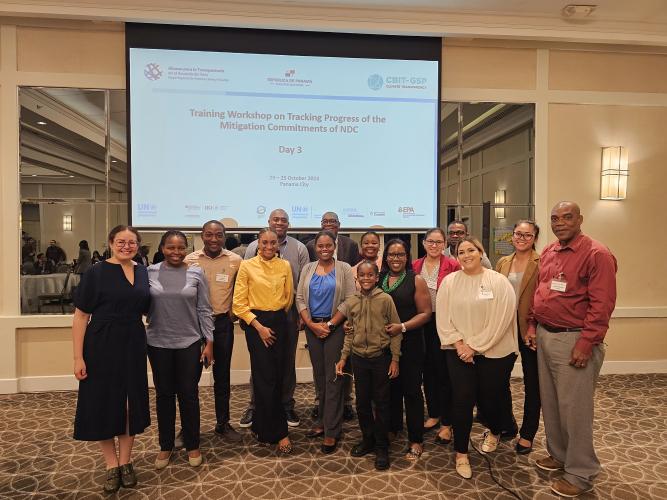Background
Nationally determined contributions (NDCs) are at the heart of the Paris Agreement and the achievement of its long-term goals. NDCs embody efforts by each country to reduce national emissions and adapt to the impacts of climate change. The Paris Agreement requires each Party to prepare, communicate and maintain successive NDCs that it intends to achieve. Parties shall pursue domestic mitigation measures, with the aim of achieving the objectives of such contributions.
Tracking NDCs is a requirement under the Paris Agreement’s Enhanced Transparency Framework (ETF). It requires transparent quantitative and qualitative information on the implementation and achievement of the NDC, including indicators comparing current or projected emissions, and information that helps better understand the NDC target and its impacts.
The Republic of Panama, the Partnership on Transparency in the Paris Agreement (PATPA), the Capacity Building Initiative for Transparency - Global Support Programme (CBIT-GSP) are co-organizing a training to develop the capacity of the Latin America and the Caribbean to better understand the reporting requirements under the Paris Agreement on NDCs, to identify indicators, and track the mitigation commitments of their NDCs.
Objective
The main objective of the workshop is to support country teams in charge of reporting NDC mitigation commitments under the Paris Agreement in technical understanding of the goals, principles, and actions associated with the reporting process for NDC mitigation commitments under the Paris Agreement.
Approach
The training appraoch inclused four different consecutive stages. Firstly, an introductory webinar that mainly sets the approach and provides instructions to the participants of the other parts of the training workshop (Stage I). Second, a phase dedicated to the collection of information in each country. Said information will be arranged in templates that will be provided by the organizers and will be useful for the exercises to be carried out in a face-to-face training (Stage II). And a third phase (Stage III) that consists of a face-to-face event where, through practical exercises and presentations, it will be possible to acquire knowledge for the assessment, tracking and reporting of mitigation under the ETF. And a final follow-up phase (Stage IV), aimed at providing feedback to the participants on the exercises and results produced by the country representatives during the face-to-face training.

